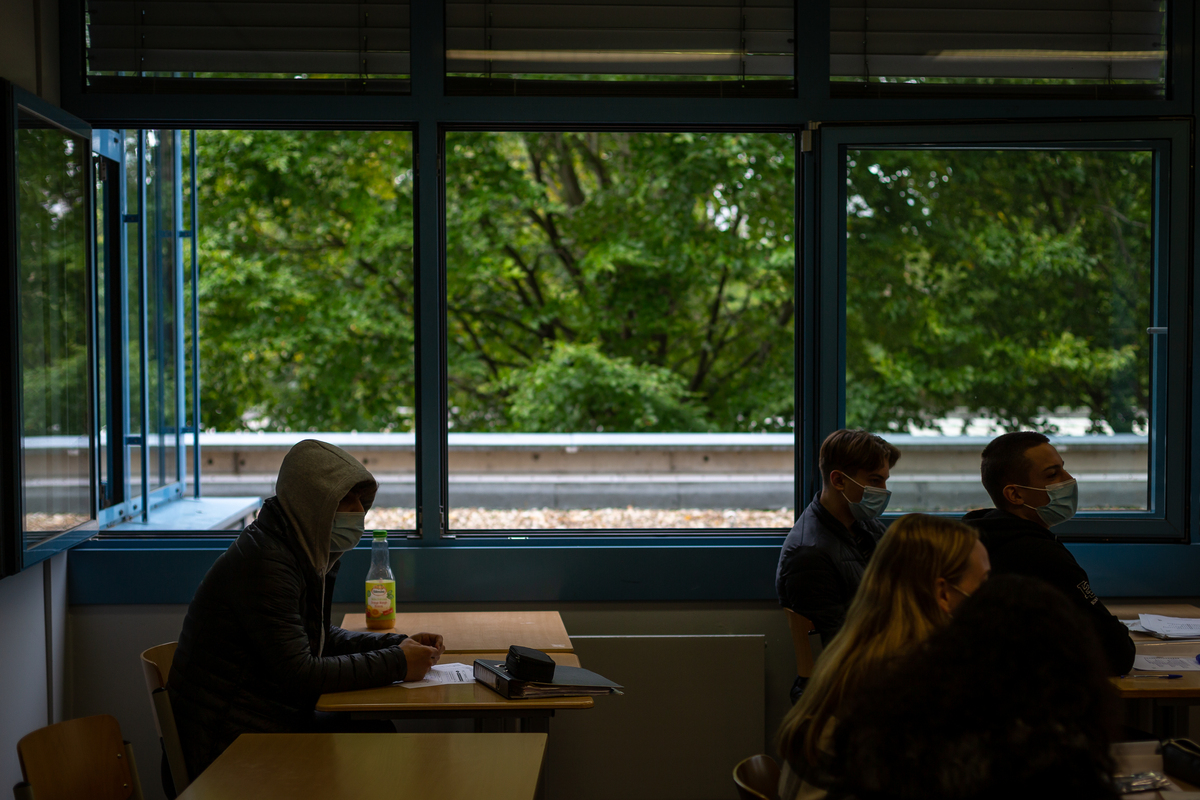
AILSA CHANG, HOST:
According to UNICEF, the world's children lost an average of 47 school days between March and October. It's one reason the organization is warning of a lost COVID generation of children. American schools are scrambling to address this, and they might look to Germany, where schools got kids back into classrooms early. In partnership with the Pulitzer Center, St. Louis Public Radio's Ryan Delaney reports.
RYAN DELANEY, BYLINE: The children and teachers at Rainbowtrekkers kindergarten in Cologne start the school day with a rhyme.
UNIDENTIFIED PEOPLE: (Speaking German).
DELANEY: "Every day is new, and every day is different," the children sing. But one thing that's changed little for them this year — their daily presence in a classroom. Germany's quick response to the pandemic in the spring allowed it to get some children back in schools after just a few weeks. And schools have remained open this fall, even as the country shut restaurants and gyms back down. Meanwhile, in some American cities, schools were shut down or remained closed, while gyms and restaurants stayed open. Jason Benedict, an American raising a family in Berlin, says he doesn't feel like the school year has been disrupted the way his friends back in the U.S. talk about it.
JASON BENEDICT: It doesn't seem like the kids are being left behind, and it doesn't feel so much — as far as scholastics, it doesn't feel like a lost year. And I'm very thankful for that.
DELANEY: Most German schoolchildren are required to wear masks during the day and not mix with kids outside their cohort. And when community spread gets too high, schools do shut down for a period of time. Iljana Lott, the director of a Berlin primary school, says she's glad the government has prioritized keeping schools open.
ILJANA LOTT: (Speaking German).
DELANEY: She says the social aspects of schooling are too important.
Liana Schmidtke is in her final year of high school in the city of Osnabruck.
LIANA SCHMIDTKE: I couldn't imagine being still in home schooling.
DELANEY: She remembers her school's spring closure as a very dark time. If schools were still closed, she says...
SCHMIDTKE: Everything would've been so much differently now. Our grades would've probably dropped, and our whole motivation to actually continue studying for graduation would've been completely miserable.
DELANEY: Back in the spring, when German schools did shut down, researchers found that students spent less time studying and more time on their phones, playing computer games or watching TV. Alex Bucher, a principal of a secondary school in Bruhl, says the closures set his students back.
ALEX BUCHER: If you don't learn as much as you could learn, you are behind. That's a fact.
DELANEY: Online learning was also a challenge, in part because of a lack of digital infrastructure in German schools. Katharina Spiess studies education and economics at the Free University of Berlin. She says school disruptions in Germany have been more harmful to some students.
KATHARINA SPIESS: Children, students which are any way disadvantaged from lower-educated households, from lower-income households, students with lower grades — they will suffer much more.
DELANEY: That's the case in the United States as well. About 3 million children have disappeared from American schools since March, according to a study by Bellwether Education Partners. Those children are more likely to live in low-income households or be English-language learners. By keeping schools open, Germany has kept many vulnerable students from falling through the cracks, but this winter will test the country's success. Many teachers are nervous about higher case numbers. They're calling for a switch to a hybrid teaching model that would keep classrooms half-full. But the government is pushing to keep schools fully open.
For NPR News, I'm Ryan Delaney in Berlin.
(SOUNDBITE OF JAMIE XX'S "OBVS")
COVID-19 Update: The connection between local and global issues–the Pulitzer Center's long standing mantra–has, sadly, never been more evident. We are uniquely positioned to serve the journalists, news media organizations, schools, and universities we partner with by continuing to advance our core mission: enabling great journalism and education about underreported and systemic issues that resonate now–and continue to have relevance in times ahead. We believe that this is a moment for decisive action. Learn more about the steps we are taking.











